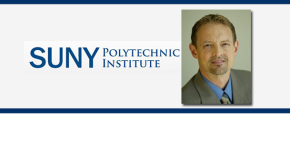 When companies are innovative, they can bring benefit, but also harm.
When companies are innovative, they can bring benefit, but also harm.
Robert Edgell, professor of technology management at SUNY Polytechnic Institute, explains that not all these companies have our best interests at heart.
Dr. Robert Edgell is an Assistant Professor of Technology Management at SUNY Polytechnic Institute and a Visiting Professor at the Swiss Business School in Zurich. Previously, he was a professor at American University’s Kogod School of Business and has taught at San Francisco State University’s College of Business.
His current scholarly research focuses on a range of interdisciplinary topics including media as a lever for corporate governance, responsible innovation and harm (in collaboration with colleagues from Stanford University Law School), top management team creativity processes, and entrepreneurial social impact.
Dr. Edgell received his Ph.D. in international multicultural management (magna cum laude) from the University of St. Gallen (AACSB accredited). He holds an MBA fromColumbia University Business School in the City of New York and a Bachelor of Architecture (5 year degree, cum laude) from Kent State University. Through Columbia’s Chazen Institute of International Business, he studied at the Rotterdam School of Management in The Netherlands. He is a registered architect and has studied at Harvard’s Graduate School of Design.
Beneficial Innovation
Innovation is that magnificent human phenomenon which enables us, working through firms and technology, to re-envision and improve our lives. Most often firms’ innovation activities, on balance, yield positive benefits for society. However, occasionally they do not.
Accordingly, we were intrigued by the question, Under which circumstances are innovating firms most likely to create benefit instead of harm?
Our investigation revealed that informational choices and responsibilities are critical predictors of innovation outcomes experienced by external constituents, especially customers and suppliers. My colleague and I found that firms which engage external constituents with meaningful and transparent information practices are more likely to create beneficial outcomes.
A Theory of Innovation: Benefit, Harm, and Legal Regimes Robert A Edgell and Roland Vogl
These firms and external constituencies deliberately enter into power-sharing dialogues with the aim of co-developing a collective language and specific meanings for benefit and harm. This approach seems to overcome the problematic nature of limited or imperfect information.
Conversely, firms that engage in low power-sharing and selective transparency with customers for example, may act unilaterally without sufficient development of shared meaning, thus increasing the likelihood of unwittingly producing harm.
So it seems that learning to speak a common language with others may be all that is needed to vastly improve innovation outcomes.”



Comments
One response to “Robert Edgell, SUNY Polytechnic Institute – Beneficial Innovation”
Dr. Edgell is the best!